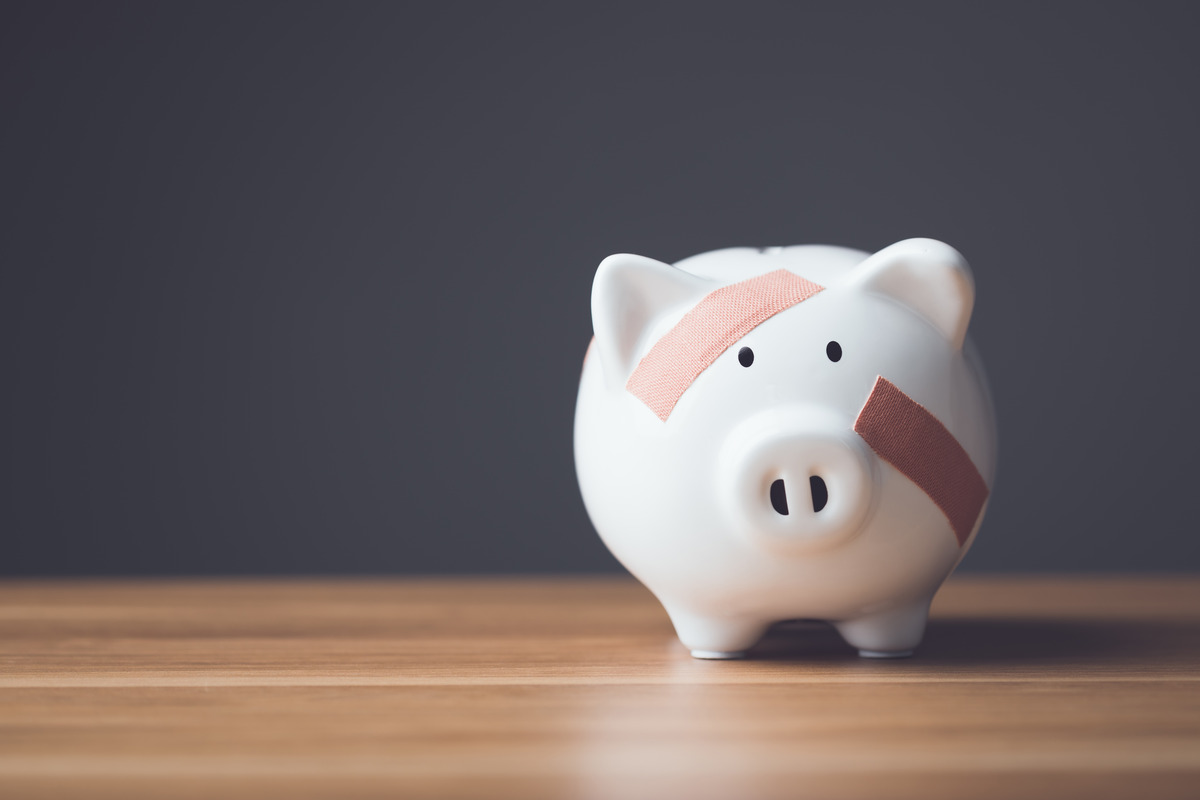We’ll be the first to admit it: sometimes, financial jargon can be confusing.
You’ve probably heard phrases such as bad credit, interest rate, and APR being thrown around, and it’s totally fine if you’re not entirely sure what it all means and how it links together.
That’s why we’re here to help. We aim to deliver the facts without frying your brain in the process.
Let’s talk about bad credit history, bad credit scores, and loans for bad credit.
In a world that sometimes seems so focused on money and credit, it can be hard not to think about our financial status. If your credit rating is less-than-perfect, you may feel somewhat disheartened, and perhaps even a bit worried.
What if you really need a loan one day in an emergency, but your score holds you back?
Your credit score does not define you. It’s important to remember that there are things you can do to take the first steps towards improving your credit score.

First things first – what causes a bad credit score?
Poor credit history and a low credit score can be the result of many factors. Some of the most common causes of bad credit include:
- Previous financial difficulties; for example, declaring bankruptcy.
- Missed payments.
- Failure to stick to existing or past credit agreements.
- Moving home regularly (although, of course, this cannot always be helped).
- Being a victim of identity theft. We understand how frustrating this is, as you’ve done nothing wrong.
- High use of existing credit
Bad credit vs no credit
A low credit score doesn’t necessarily mean that you have poor credit history – it may simply mean that you have no credit history available for lenders to look at. This can be common for people who have never entered into a credit agreement before. This can be for a range of products, such as a loan or credit card or even a mobile phone contract.
Can I get a loan with bad credit?
Being approved for a loan with bad credit history or a bad credit score is not impossible, although it may be tricky. Certain lenders (including some on our panel), specialise in loans for those with bad credit. Remember though, interest rates are likely to be higher, and you may be offered a smaller loan than you requested.
Regardless of your credit score, we can’t stress how crucial it is to think very carefully before you apply for a loan.
When you need some extra money in an emergency, it can be difficult to think calmly and carefully. We’re familiar with that horrible sinking feeling when the boiler suddenly decides to pack up, or the car won’t start. Taking a step back and weighing up the facts and potential risks is important.
Before you apply for a loan, ask yourself the following questions:
- Can I afford to make the monthly repayments?
- Am I confident that I can pay the loan back within the agreed term?
- Have I thought about the risks of being unable to repay my loan?
- Have I considered any fees that I may be liable for if I struggle to repay my loan?
We’re not trying to worry you; we’re here to help, and that help extends to us being responsible.

How do bad credit loans work with Viva Money?
Viva Money is a credit broker, not a lender. We work with a range of trusted lenders covering a spectrum of different financial situations and credit scores.
Searching for a loan with Viva Money will not impact your credit rating, and our soft search will only be visible to you on your credit file. If your credit score is on the low side, this may give you some peace of mind.
Fill out our simple form and answer all the questions. We will then scan our panel of lenders for a suitable match.
If we can match you with a loan you will be redirected to the lender’s website, where you will complete some further checks including a hard credit search. A hard search will show on your credit file.
If the lender is happy with the outcome of their checks, they’ll send you a loan agreement, which you should read carefully before deciding if this is the right loan for you.
How much will a bad credit loan cost?
There’s no ‘one size fits all’ answer to this question. The interest rate you are offered will depend on your loan term, loan amount, credit score and history.
What are the benefits of improving my credit score?
Improving your credit score could increase your chance of being approved for financial products, such as a loan or credit card, should you need to apply in the future. You could also be offered better rates of interest.
How can I improve my credit score?
Don’t worry - there are a number of ways that you can improve and build up your credit score.
- Register to vote. Yes, really. Did you know that signing up to the electoral register can make it easier for potential lenders to identify you at your address?
- Check your credit report and amend any errors. Even something that seems as minor as a mistyped postcode could lower your credit score.
- Make sure your address is up to date on your credit report.
- Be wary of financial association with other people. For example, if you share a joint account with somebody who has a low credit rating this could have a negative effect on your own.
- Using your credit card to withdraw cash at an ATM could impact your credit score.
- Make sure all your bills and any current financial commitments are paid on time.
- Too many hard credit searches carried out by potential lenders could lower your credit score. Avoid making numerous applications over a short period of time.
Loans for Bad Credit: The Recap Quiz
- Which of the following does NOT cause bad credit history?
- Is it possible for someone with bad credit to get a loan?
- Which of the following ARE ways to improve your credit rating?
- How much will a loan for bad credit cost?
- What are some of the benefits of improving your credit rating?
A. Having a really awful singing voice.
B. Moving home frequently.
C. Previous financial difficulties.
A. Absolutely not.
B. It might be.
C. Yes!
A. Check your credit report for errors.
B. Register to vote.
C. Send the credit bureaus a box of Celebrations as a bribe.
A. £2.50.
B. The same amount as the money I borrow.
C. It depends on the APR, which is determined by individual circumstances.
A. It improves your chances of being approved for financial products in the future.
B. The government rewards you with a trip to Disneyland Florida.
C. If borrowing, you may be offered better rates of interest.
Answers:
- A
- B
- A&B
- C
- A&C

I’m struggling to make my repayments. Is there anything I can do?
We’re sorry that you’re in this position, and we understand that it can feel really daunting.
Let your lender know that you are facing difficulties. They will try to work with you to find a suitable solution to help ease the burden.
Talking about money worries isn’t something that comes naturally to many of us, but opening up is the first step towards taking back control. You can find free, impartial advice on websites such as Citizens Advice Bureau, MoneyHelper, and National Debtline.
StepChange also offer free support on budgeting, the cost-of-living crisis, and debt management. To find out how StepChange could help you, take the free Money Health Check. This can be done online, and the answers you give will result in personalised recommendations on taking the next steps.







